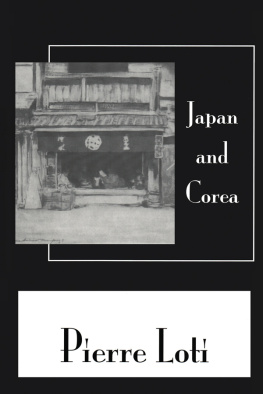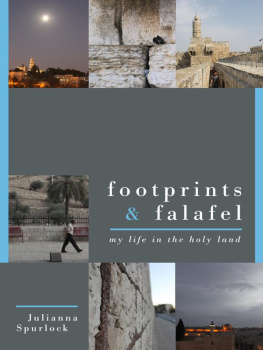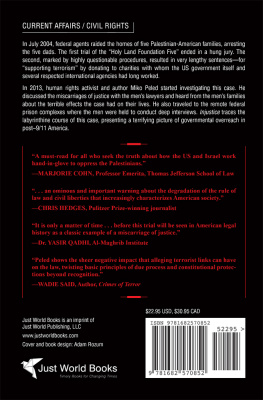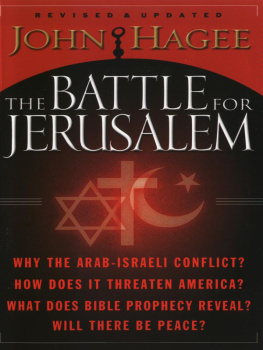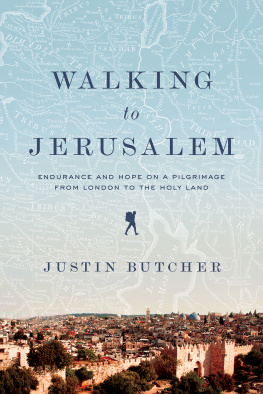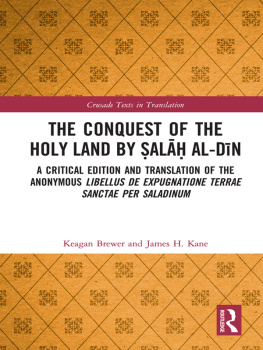
Jerusalem
and the Holy Land
There are many books on the Holy Land, but not one that has in it anything such as Loti has put into this one that makes Christ seem so real, and yet the author professes to be an unbeliever. It has an extraordinary charm and fascination and believers and unbelievers alike will appreciate it.
Pierre Loti, perhaps the worlds most prolific, romantic and exotic travel writer and novelist, was born as Julien Marie Viaud in Rochefort in Western France in 1850. A childhood fascination with exotic lands across the seas led him to embark on a naval career that enabled him to seek love and adventure in many latitudes. He drew on these real life experiences when writing the romantic novels and travel books that made him one of the most popular authors of his day. Although his prolific output brought him both fame and fortune he remained a romantic escapist and never gave up his beloved naval career. He retired from the French navy in 1910 and died in 1923.
Johiz Frtlleylouc, R.I.
FORECOURT OF THE HOLY SEPULCHRE.
Jerusalem
and the Holy Land
Pierre Loti
First published in 2002 by
Kegan Paul International
This edition first published in 2011 by
Routledge
2 Park Square, Milton Park, Abingdon, Oxon, OX14 4RN
Simultaneously published in the USA and Canada
by Routledge
711 Third Avenue, New York, NY 10017
Routledge is an imprint of the Taylor & Francis Group, an informa business
Kegan Paul, 2002
All rights reserved. No part of this book may be reprinted or reproduced or utilised in any form or by any electronic, mechanical, or other means, now known or hereafter invented, including photocopying and recording, or in any information storage or retrieval system, without permission in writing from the publishers.
British Library Cataloguing in Publication Data
A catalogue record for this book is available from the British Library
ISBN 10: 0-7103-0818-3 (hbk)
ISBN 13: 978-0-7103-0818-4 (hbk)
Publishers Note
The publisher has gone to great lengths to ensure the quality of this reprint but points out that some imperfections in the original copies may be apparent. The publisher has made every effort to contact original copyright holders and would welcome correspondence from those they have been unable to trace.
CONTENTS
JERUSALEM
CHAPTER I
O crux, ave spes unica !
J ERUSALEM ! What dying splendour clings about the name! How it radiates still, out of the depths of time and dust ! Almost I feel that I am guilty of profanation in daring to place it thus, at the head of this record of my unbelieving pilgrimage.
Jerusalem ! Those that have walked the earth before me have already found in it the inspiration of many books, books profound and books magnificent. All that I am going to try to do is to describe the actual aspect of its desolation and its ruins ; to tell what, in our transitory epoch, is the degree of effacement suffered by its great and holy shade, which a generation soon to come will no longer be able even to discern.
Perhaps I shall tell also of the impression of a soulmy ownwhich was amongst the tormented spirits of this closing century. But other souls are in like case and will be able to follow me ; we are of those whose lot it is to suffer the gloomy anguish of the present day, who stand on the brink of the dark chasm into which everything seems destined to fall, there to perish utterly ; who nevertheless can still descry, in the scarce distinguishable distance, rising out of all the outworn trappings of human religions, the promise of pardon which Jesus brought, the consolation and the hope of heavenly reunion. Oh ! surely nothing else had ever any reality. All the rest is void and negligible, alike in the theorisings of the great modern philosophers as in the arcana of millenary India and in the visions of the inspired and marvellous seers of the early ages. And thus, out of the depths of our despond, there continues to ascend towards Him who once was called the Redeemer a vague, desolate adoration.
Verily my book will not be able to be read and endured save by those whose great grief it is that they once possessed and now have lost the Only Hope ; by those who, doomed as I to unbelief, come yet to the Holy Sepulchre with a heart full of prayer, with eyes filled with tears, and, for a little while, would linger, kneeling, there.
CHAPTER II
Monday, 26th March.
I T is Easter Monday. Arrived from the desert we awaken under tents in the middle of a cemetery of Gaza. The wild Bedouins who attended us, the camels and the dromedaries are no more. Our new men, who are Maronites, are busy saddling and harnessing our new beasts, which are horses and mules ; we are striking camp preparatory to beginning our journey towards Jerusalem.
Preceded by two guards of honour allotted to us by the pasha of the town, who clear a way for us through the crowd, we traverse for a long time market-places and bazaars. Afterwards, the outskirts of the town, where the animation of the morning is localised about the wells; the whole fraternity of water-sellers is there, filling their sheepskin water-bottles and loading them on donkeys. Then come interminable debris of walls, of gateways, heaps of ruins asleep under the palms. And at length the silence of the countryside, the fields of barley, the woods of age-old olives, the beginning of the sandy road to Jerusalem where our guards leave us.
We leave this road on our left and take the simple pathways that lead through the green barley-fields to Hebron. Our arrival in the Holy City will be delayed forty-eight hours by this detour, but it is the way pilgrims are wont to follow so that they may visit the tomb of Abraham.
A journey of some thirty miles to-day through fields of velvety barley, broken by regions of asphodels where herds are at graze. From distance to distance, Arab encampments, black tents on the beautiful green of the herbage. Or perhaps fellah villages, with houses of greyish earth grouped about a little whitewashed dome, which is a holy tomb and serves them for protection.
Towards evening the sun, which has been very warm, becomes veiled little by little with mournful mists, till it seems no more than a pale white disk. And it is borne in upon us how far we have travelled already towards the north.
At the same time we leave behind us the plains of barley and enter upon a mountainous country. Soon the valley of Bet-Djibrin, where we count on spending the night, will open before us.
Truly a valley of the Promised Land, flowing with milk and honey. Green it is, with the exquisite green of springtime, of a meadow in May, amid its hills, which olive-trees, vigorous and superb, cover with another green, magnificently sombre. Underfoot the thickly growing herbage is speckled with red anemones, violet irises and pink cyclamen. The air is filled with the perfume of flowers, and in the centre of the valley gleams a little lake, where at this hour sheep and goats are drinking.
On one of the hills stands the little old Arab village to which the innumerable herds are brought for the night. While our camp is being set up, on the tall, flowered grass, there passes before us an endless procession of cattle and sheep, which climb to the enclosure of its earthen walls, conducted by long-robed, turbaned shepherds, like saints or prophets. A number of children follow, carrying tenderly in their arms the new-born lambs. The last that come to plunge themselves into the narrow streets of dried mud are many hundreds of black goats, which make their way in a compact mass, like a long unbroken trail, of the colour and sheen of a raven. Truly it is amazing what this hamlet of Bet-Djibrin is able to hold ! And as all these beasts pass, a wholesome odour of the stable mingles with the perfume of the peaceful countryside.





